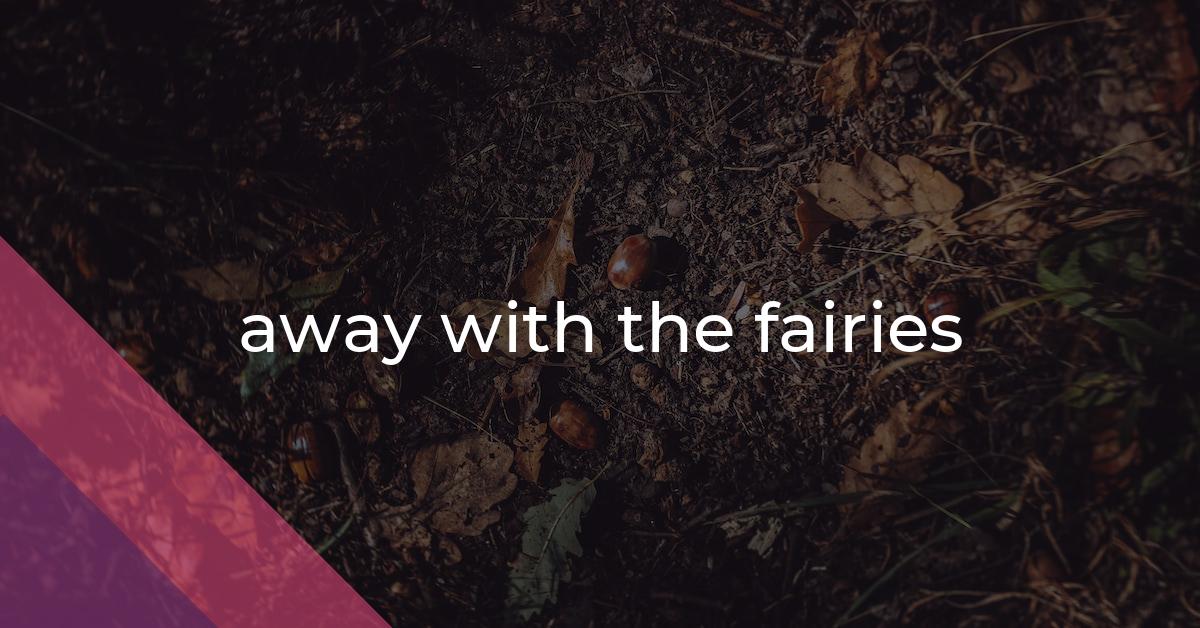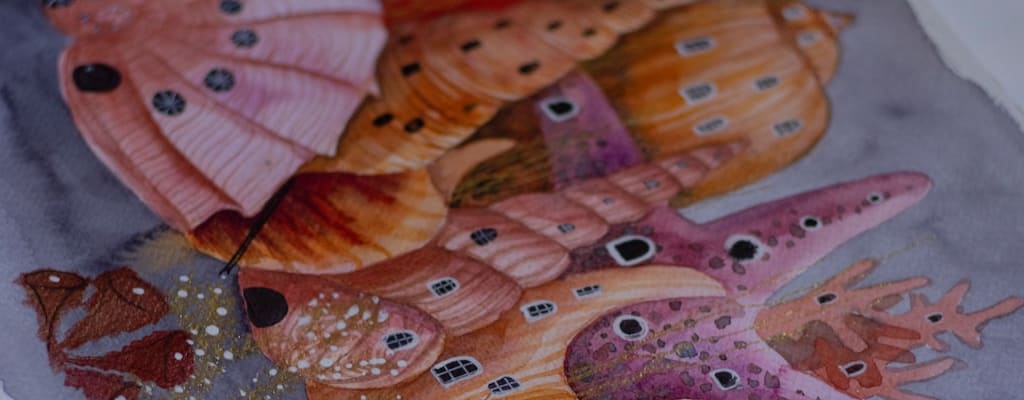away with the fairies: Idiom Meaning and Origin
What does ‘away with the fairies’ mean?
The idiom "away with the fairies" means to be in a dreamy or absent-minded state, detached from reality and not paying attention to what is happening around you.

Idiom Explorer
The idiom "whisk away" means to quickly and unexpectedly take someone or something away from a place or situation.
The idiom "in your dreams" means that something is unlikely or impossible to happen in reality. It is often used as a dismissive response to indicate that someone's desire or suggestion is unrealistic.
The idiom "into thin air" means to disappear or vanish suddenly and completely, without leaving any traces or evidence behind.
The idiom "interpret away" means to explain or rationalize something in a way that downplays or dismisses its importance or significance.
The idiom "in one's wildest dreams" means beyond one's imagination or expectations, referring to something that is highly unlikely or unrealistic.
The idiom "in one's dreams" means that something is unlikely or impossible to happen. It is often used to dismiss someone's unrealistic or fanciful ideas.
The idiom "gone with the wind" means to disappear or be completely lost, often without any trace or indication of where or how it happened.
The idiom "go fly a kite" is an informal way of telling someone to go away or to leave you alone, often used when you are annoyed or frustrated with them.
The idiom "go by the wayside" means to be forgotten or abandoned, usually due to a lack of attention or interest.
The idiom "get lost" means to tell someone to go away or leave, often used in a rude or dismissive manner. It is a way of expressing annoyance or frustration with someone's presence.
Journeying into Enchanted Realms
There isn't much information available about the origin and history of the idiom "away with the fairies," but we can still learn some interesting facts about it. This idiom is used to describe someone who seems dreamy and absent-minded, like they're not fully present. It's believed to have originated in British English and has been around since at least the early 20th century.
So, what's the connection between "away with the fairies" and other idioms like "in one's dreams" and "whisk away"? Let's take a closer look.
One possible explanation for the origin of the idiom is its association with folklore and mythical creatures. Fairies are often depicted as ethereal beings living in a magical realm. When we say someone is "away with the fairies," we might be suggesting that their thoughts or attention have drifted off to this fantastical realm, away from the reality of their current situation. It's like they're in a daydream, lost in their own thoughts.
Speaking of daydreams, the idiom "in one's dreams" has a similar meaning to "away with the fairies." When we say something is "in one's dreams," we're basically saying it's unrealistic or unlikely to happen. It's like being lost in a dream that's never going to come true. So, both idioms convey a sense of being detached from reality and immersed in a fantasy world.
Now, let's talk about the idiom "whisk away." When we say someone has been "whisked away," we mean they've been suddenly and unexpectedly taken somewhere else. It's like they've been swiftly transported to a different place. This idiom has a connection to "away with the fairies" because both suggest a sense of being removed from one's current situation. "Whisk away" implies a physical removal, while "away with the fairies" suggests a mental or emotional detachment.
Regardless of its exact origins, the idiom "away with the fairies" is widely used to describe people who seem absent-minded or lost in their own thoughts. It's a way of acknowledging that someone is not fully engaged in the present moment. While the idiom may not be commonly used in American English, it's still prevalent in British English and its variants.
So, why do we continue to use this idiom? Well, its association with folklore and mythical creatures adds a touch of whimsy and intrigue. The idea of being "away with the fairies" captures our imagination and reminds us of the complexities of human experience. It's a way of expressing something that can't be easily put into words. Plus, idioms like "away with the fairies" have a way of capturing the essence of a particular feeling or experience, making them memorable and relatable.
While we may never know the true origin of the idiom "away with the fairies," its meaning and usage remain consistent. It's a phrase that resonates with individuals who are familiar with its usage and conveys a specific meaning. With its whimsical imagery and the associations it evokes, this idiom continues to captivate and remind us of the power of figurative language to capture elusive aspects of our inner worlds.
Example usage
Examples:
- She's always away with the fairies during math class.
- After staying up all night, he's completely away with the fairies today.
- He didn't hear a word I said, he was away with the fairies.
More "Fantasy" idioms



